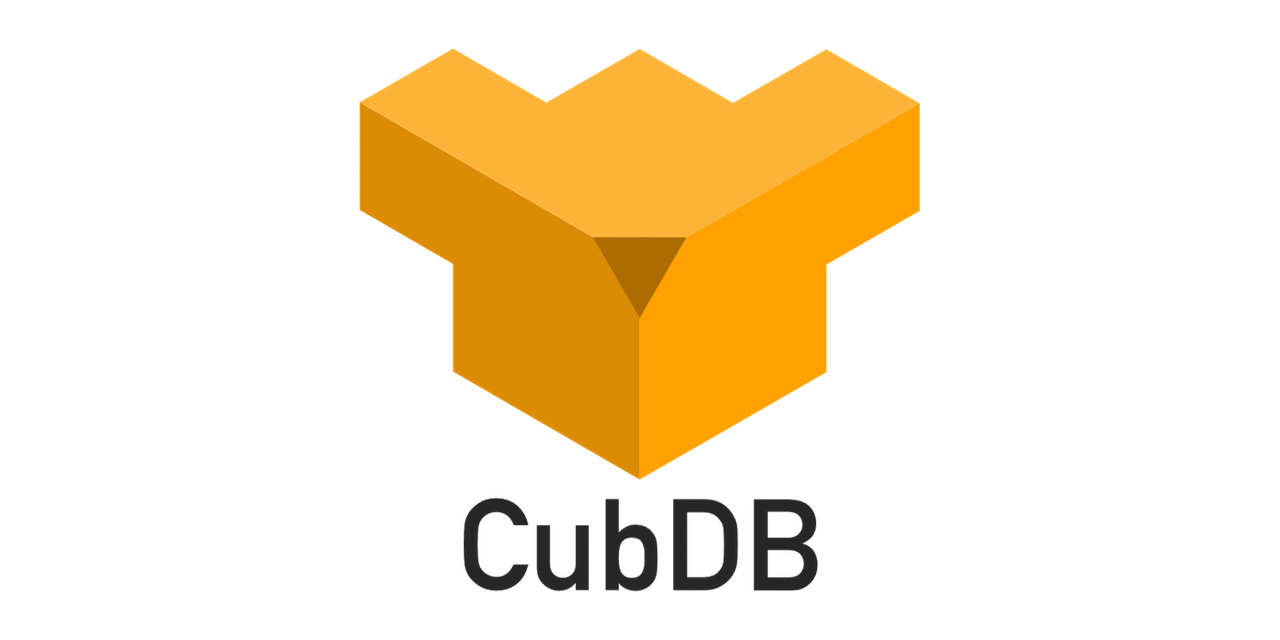lucaong / Cubdb
Programming Languages
Projects that are alternatives of or similar to Cubdb
CubDB is an embedded key-value database written in the Elixir language. It
runs locally, it is schema-less, and backed by a single file.
Head to the API reference for usage details, or read the Frequently Asked Questions and the How To section for more information.
Features
-
Both keys and values can be any arbitrary Elixir (or Erlang) term.
-
Simple
get,put, anddeleteoperations -
Arbitrary selection of ranges of entries sorted by key with
select -
Atomic transactions with
put_multi,get_and_update_multi, etc. -
Concurrent read operations, that do not block nor are blocked by writes
-
Unexpected shutdowns won't corrupt the database or break atomicity
-
Manual or automatic compaction to optimize space usage
To ensure consistency, performance, and robustness to data corruption, CubDB
database file uses an append-only, immutable B-tree data structure. Entries are
never changed in-place, and read operations are performend on immutable
snapshots.
Usage
Start CubDB by specifying a directory for its database file (if not existing,
it will be created):
{:ok, db} = CubDB.start_link(data_dir: "my/data/directory")
Important: avoid starting multiple CubDB processes on the same data
directory. Only one CubDB process should use a specific data directory at any
time.
get, put, and delete operations work as you probably expect:
CubDB.put(db, :foo, "some value")
#=> :ok
CubDB.get(db, :foo)
#=> "some value"
CubDB.delete(db, :foo)
#=> :ok
CubDB.get(db, :foo)
#=> nil
Multiple operations can be performed as an atomic transaction with put_multi,
delete_multi, and the other [...]_multi functions:
CubDB.put_multi(db, [a: 1, b: 2, c: 3, d: 4, e: 5, f: 6, g: 7, h: 8])
#=> :ok
Range of entries sorted by key are retrieved using select:
CubDB.select(db, min_key: :b, max_key: :e)
#=> {:ok, [b: 2, c: 3, d: 4, e: 5]}
But select can do much more than that. It can apply a pipeline of operations
(map, filter, take, drop and more) to the selected entries, it can
select the entries in normal or reverse order, and it can reduce the result
using an arbitrary function:
# Take the sum of the last 3 even values:
CubDB.select(db,
# select entries in reverse order
reverse: true,
# apply a pipeline of operations to the entries
pipe: [
# map each entry discarding the key and keeping only the value
map: fn {_key, value} -> value end,
# filter only even integers
filter: fn value -> is_integer(value) && Integer.is_even(value) end,
# take the first 3 values
take: 3
],
# reduce the result to a sum
reduce: fn n, sum -> sum + n end
)
#=> {:ok, 18}
For more details, read the API documentation.
Installation
CubDB can be installed by adding cubdb to your list of dependencies in
mix.exs:
def deps do
[{:cubdb, "~> 1.0.0-rc.8"}]
end
Acknowledgement
The file data structure used by CubDB is inspired by
CouchDB. A big thanks goes to the CouchDB
maintainers for the readable codebase and extensive documentation.



